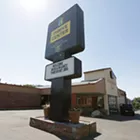The Spark Central workshop flyer came out, and I instantly committed. This collaboration immediately caught my attention. Although I'm up to (and arguably over) my eyeballs in responsibility, far exceeding my comfort level regarding this season's lengthy to-do lists, sometimes the soul demands you simply make space. So I signed up.
The topic: "Writing About Home." The Organization: Spark Central, a nonprofit oasis nestled in Kendall Yards supported by Spokane's outstanding writers and dedicated to igniting "the creativity, innovation and imagination necessary for people to forge the path to their best future." The teachers: LaRae Wiley, executive director of Sƛ̓x̌atkʷ N̓səl̓xčin̓ Sn̓maʔmáyaʔtn̓ (the Salish School of Spokane); and Laura Read, Spokane's former poet laureate and author of "Instructions for My Mother's Funeral."
On two frigid Monday "fall" evenings, after long days of teaching, I traversed icy parking lots to enter another classroom and become a student.
Salish words sound like nothing I've encountered. The language feels more ancient, more substantial. The sounds feel almost too slippery to grab hold of. Without baseline familiarity, my ear struggled to pick up subtle distinctions. For an entire class, I thought the word for the number one — naqs — ended with a "ps" sound (like "naps" — perhaps my need for one was evident here) rather than a "ks" sound (like "snacks" — nom nom). My lips tripped over pronunciation. My tongue was confused on whether to land on the roof of my mouth or hover somewhere in the middle to propel proper pronunciation. My cheeks puffed out to perform unfamiliar, soft (rounded?) linguistic expressions.
Challenging is perhaps a word that aptly explains the experience. Though by all rights, I'd have partial cause to blame this on the cold or the long days. The disquiet is mine to own.
I know many folks who enjoy throwing themselves into challenging opportunities, but I wouldn't consider myself one. I'm more growth-mindset in theory — especially externally — a little less so in practice. I like focusing on what I'm already adept at — pouring energy into refinement, not building skills up from the bottom. I get anxious if I don't feel confident in a successful outcome or at least in my abilities to maneuver toward one. Intellectually, I'm aware that micro-adjustments and slow development create impactful shifts. My students teach me this lesson every semester. Internally, it's still a struggle.
That's one version of this story. However, attending the workshop unveiled another. I chose and completed the workshop because it was meaningful. Contrary to what my thoughts occasionally tell me, I do know how to carve out attention, even for incremental improvement, when my heart is in the right place. I am devoted to what matters.
Learning some Salish felt like a way to live in better alignment with this land and its caretakers, honoring those who continue protecting this region and cultivating the words that can describe this beautiful place we call home. Taking classes felt like a way to bring me closer to my students' realities. Writing alongside those who would risk pouring themselves into words and entrusting others with them felt like a valuable act of co-creation. The workshop reminded me that despite discomfort, connection can be sacred.
Learning some Salish felt like a way to live in better alignment with this land and its caretakers.
The bigger revelation, however, was the subtle, slow transformation of my view of home. My first poem on the topic — written years ago while grieving — was a description of destruction, dark and untethered. But when given the prompt in this workshop, I arrived somewhere entirely unexpected — a place just as real but far safer and filled with more light.
Here's a sneak peek, though I wouldn't count on it remaining the same. The poem and I continue to be works in progress:
The world and I begin between these sturdy wooden walls called home. The real me residing within. Inside this shelter, I am most fully known. To myself. And to others who've been invited in.
Here, masks get neatly hung up on hooks by the door.
...
External validation is near meaningless inside a refuge. What does my little, squishable kəkwápaʔ (dog) care about publications or position? Unless we're discussing the position he's actually insistent upon — my palm, as it slowly strokes his forehead or my fingers as they tear apart strips of cold, sinewy chicken breast for his supper.
Here, safety begets discovery.
...
Stay tuned for the upcoming release of Spark Central's poetry book this spring. In Salish, they do not say goodbye. They only say, "I will see you again." I find this stunningly beautiful. Some words really make me wonder who we might become if we chose not to use them. So, with that in mind, nem heł wičtmn — I will see you again. ♦
Inga N. Laurent is a local legal educator and a Fulbright scholar. She is deeply curious about the world and its constructs and delights in uncovering common points of connection that unite our shared but unique human experiences.





















